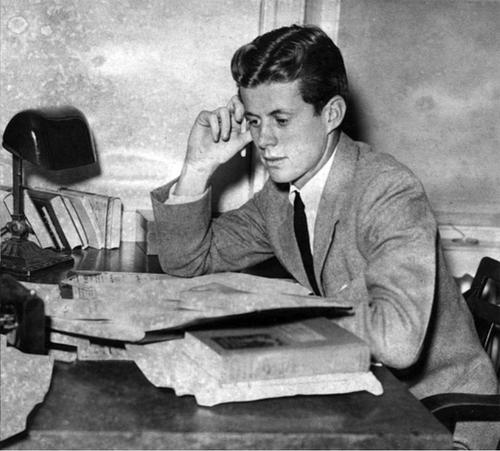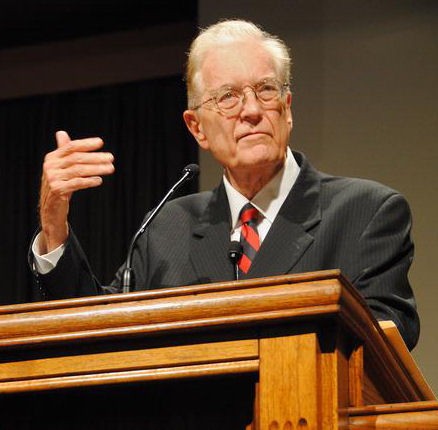
Why study history? Everyone who is considering enrolling in a history course at college or senior secondary levels should give some serious thought this question. It is reasonable to expect that anyone studying history has an interest in the past – but that should not be the only reason. Prospective students should also understand the importance and value of history.
Understanding the value of history
In today’s world, where the focus is very much on today and tomorrow, the value of history is often questioned or challenged.
Many people are sceptical about the practical worth of history. Some question the relevance and usefulness of studying things that happened long ago. Some believe history has little or no bearing on their lives or on the world today. Some doubt the practical value of a history qualification in the career market.
All these questions deserve some thought, particularly for aspiring history students. This page contains some brief points about the value and importance of studying history. It may be useful for those thinking about a history course, as well as teachers or parents advising young people about studying history.
A complex range of skills
Many people hold a negative or dismissive view of history. They may believe that studying history involves rote learning or memorisation and recall of facts and dates, but little else.
Anyone who has studied history at higher levels will know there is much more involved. History requires the acquisition and use of many skills. History students must develop the ability to locate, study and interpret written and visual material, in order to extract evidence and meaning. They must be adept at contextualisation, analysis, problem-solving and critical thinking.
History students also must be strong communicators, in order to express their findings clearly and effectively. History also draws on and utilises knowledge and ideas from many other disciplines, including politics, legal studies, economics, sociology, philosophy, psychology, the sciences and the arts. These skills and knowledge can be extremely useful, both in employment and in the study of other subjects.
Most employers, from both understanding and experience, understand the skills that history graduates have and the value they can offer. Here is a list of some professions and vocations that a history qualification can prepare you for:
Historian, archaeologist, conservator, museum curator, tour guide, archivist, records management, teacher, tutor, researcher, journalist, writer, editor, communications, marketing and PR, content creator, politician, policy officer, public servant, diplomat, humanitarian aid worker, social worker, administrator, management, lawyer, paralegal, human resources.
Lessons about past, present and future
For as long as human beings have studied history, cynics have dismissed it as a curious indulgence, a quaint but worthless fascination with vanished societies and dead people. This attitude was typified by American industrialist Henry Ford, who in 1916 said that “History is more or less bunk [nonsense] … the only history worth a damn is the history we make today”.
Ford’s negative view of history, while not uncommon, is narrow and misguided. History does indeed require study of the past, however, this often enhances your understanding of the modern world.
Most history courses focus on timeless themes and issues – for example, the ways in which people, communities and nations interact; the nature of power and leadership; the difficulties of government and economic management; the impact of war and conflict on societies; and the relationships between different classes, wealth, capital and labour. These themes and issues never die: only the people, places and details change.
History also provides a context that is essential for understanding the modern world. It is impossible to fully understand modern Russia and China, for example, without knowing how these societies have been shaped by imperialism, war, revolution, communism and the Cold War.
Research and interpretation

To be a successful history student or historian, you must first become a good researcher. Research is the skill of locating and gathering information and historical evidence, from many different places. This evidence can be found in a variety of forms, including documents, visual material, physical artefacts, oral and digital sources.
Historians apply their knowledge and skills to locate sources and to extract information, evidence and meaning from them. They think critically about every piece of evidence, testing and evaluating its reliability, credibility, usefulness and significance.
All this makes historians and history graduates skilled at locating, handling and evaluating information. Skills like these are not just valued in history, they are in demand in other academic disciplines and a range of professions.
Thinking and problem-solving
History can be extraordinarily complex. Historical research and interpretation requires a great deal of detective work, careful thought and problem-solving.
When locating and studying information and evidence, historians begin to build up an understanding and a ‘picture’ of the people, event or society being studied. As they delve deeper into the past, historians almost always find unanswered questions, unclear information or missing pieces of evidence.
After finishing his or her research, the historian must start looking for answers. At this point, history becomes akin to assembling a gigantic jigsaw puzzle – except there is no box or picture to serve as a guide and some of the pieces are missing. The historian must weigh up their evidence, think logically and laterally, then develop credible and justifiable arguments or theories.
Clear communication

As in other humanities disciplines, historians and history students must be effective communicators. They must develop and refine techniques in order to share their findings and conclusions.
Historians communicate in many different ways. Many prominent historians publish the findings of their research as books. Academic historians often write articles for scholarly journals, where they are peer reviewed (examined by other historians) before publication. Historians can also articulate their findings in newspaper or magazine articles, interviews, lectures, symposiums and conferences or on the Internet.
History students, in contrast, usually outline their conclusions in essays and term papers, book reports, document or image analyses, oral presentations, performances, projects, slideshows and examinations. All require you to develop a range of communication skills. These skills are used and valued in other academic disciplines, as well as various fields of employment.
A preparation for many professions
One criticism often made of history is its perceived lack of value in the career market. While commerce students go on to work in business and science students have a range of career options, a history qualification seems to offer few direct paths to employment – other than history teaching, academia or museum work.
This is an unfair representation of how useful and well regarded history qualifications can be. The skills and knowledge acquired from studying history are valued by many professions. As effective writers and communicators, many history graduates become successful journalists, copywriters, authors, editors, content managers and marketing professionals.
Being able to locate, organise and manage information has enabled many history graduates to become outstanding researchers, librarians, information managers and administrators. Other history graduates complete additional study to become lawyers, diplomats and public officials.
Politics is another career path for history graduates, some of whom have risen to high office. History is also a useful platform for a career in the military or police forces – or for further studies in economics, business management, records management, social work or psychology.
Who has studied history?
Listed below are some famous people who have studied history at college or university level. The list is far from exhaustive.
Joe Biden (US president)
Gordon Brown (British prime minister)
Steve Carell (American actor/comedian)
King Charles (British monarch)
Sacha Baron Cohen (British actor/comedian)
Winston Churchill (British prime minister)
Dwight D. Eisenhower (US general and president)
Katherine Hepburn (American actress)
Seymour Hersh (American journalist)
Chris Hughes (American entrepreneur, co-founder of Facebook)
Kareem Abdul Jabbar (American basketballer)
John F. Kennedy (American president)
Henry Kissinger (American politician and diplomat)
Richard Nixon (American president)
Ed Norton (American actor)
Conan O’Brien (American TV host)
Bill O’Reilly (American broadcaster)
Samuel Palmisano (American executive, CEO of IBM)
Franklin D. Roosevelt (American president)
Theodore Roosevelt (American president)
Salman Rushdie (British author)
Antonin Scalia (US Supreme Court Justice)
Shakira (Colombian pop singer)
Howard Stringer (Welsh executive, CEO of Sony)
Louis Theroux (British documentary maker)
H. G. Wells (British author)
Gough Whitlam (Australian prime minister)
Woodrow Wilson (American president)
History creates good citizens
Lastly, and perhaps most importantly, history helps create thoughtful people and good citizens.
Unlike those in fields like mathematics or the physical sciences, history students spend most of their time studying people and societies. They learn what it means to be human. They understand the value of concepts like ethics, empathy, diversity and social justice. They know the risks and the dangers of certain ideas.
Historians and history students learn about the timeless issues and problems that affect human societies, both past and present. This equips them well to understand and work with the people in their own world.
Studying history also creates thoughtful and active citizens who are willing to participate in the political process or in their own communities. History endows many of its students and graduates with healthy scepticism – a willingness and a capacity to question their own world and perhaps find ways to make it better.
Citation information
Title: ‘Why study history?’
Authors: Jennifer Llewellyn, Steve Thompson
Publisher: Alpha History
URL: https://alphahistory.com/why-study-history/
Date published: September 28, 2021
Date updated: November 3, 2023
Date accessed: July 26, 2024
Copyright: The content on this page may not be republished without our express permission. For more information on usage, please refer to our Terms of Use.
